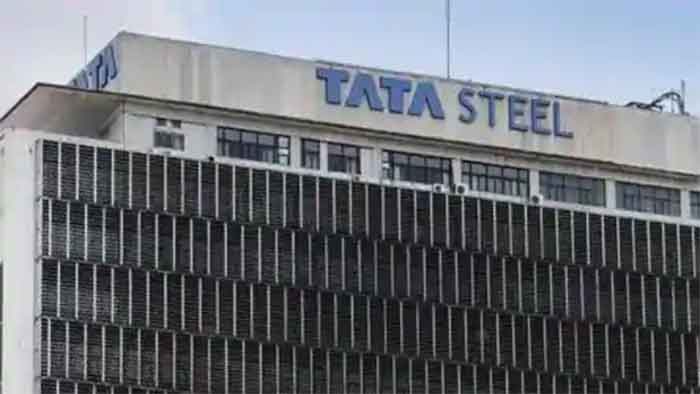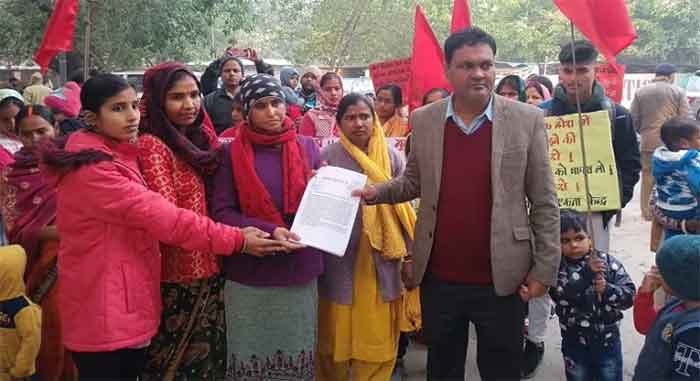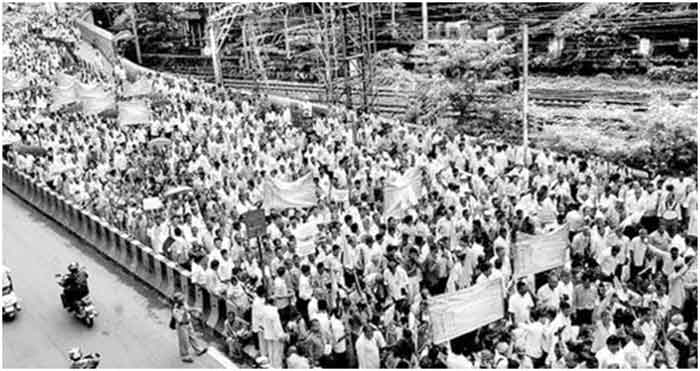
Writing in the March 26, 2012 issue of Outlook, Arundhati Roy talks of how since the middle of the first decade of this century, wherever Tisco has gone in search of an easy kill, whether in Chhattisgarh or in Orissa, violence against tribals whose lands the corporate giant sought to take over, has been the order of the day. Roy : “In 2005, the state governments of Chhattisgarh, Orissa and Jharkhand signed hundreds of Memorandums of Understanding (MoUs) with a number of private corporations turning over trillions of dollars of bauxite, iron ore and other minerals for a pittance… Only days after the Chhattisgarh government signed a MoU for the construction of an integrated steel plant in Bastar with Tata Steel, the Salwa Judum, a vigilante militia, was inaugurated. The government said it was a spontaneous uprising of local people who were fed up of the ‘repression’ by Maoist guerrillas in the forest. It turned out to be a ground-clearing operation, funded and armed by the government and subsidised by mining corporations.”
Tisco is never to be seen when “ground-clearing operations” are in progress. Politicians, bureaucrats, police functionaries and other well-chosen agents take on themselves the responsibility of delivering the goods to the steel behemoth. In return for hefty ‘considerations’, many a “people’s representative” has been known to sell his soul enthusiastically to the country’s best-known moneybag.
Roy : “On January 2, 2006, in Kalinganagar, in the state of Orissa, perhaps to signal the seriousness of the government’s intention, ten platoons of police arrived at the site of another Tata Steel plant and opened fire on villagers who had gathered there to protest what they felt was inadequate compensation for their land. Thirteen people, including one policeman, were killed and 37 injured. Six years have gone by and though the villages remain under siege by armed policemen, the protest has not died.”
Divya Gupta, writing in the November, 2011 issue of the Delhi monthly The Caravan, has dealt with the Kalinganagar tragedy in greater detail. Gupta is both descriptive and analytical as she goes about explaining the background to the firing and what unfolded in its aftermath. She quotes a Bhubaneswar-based journalist named Sudhir Patnaik who publishes an Oriya fortnightly magazine, Samadrusti : “Kalinganagar was a turning-point in anti-displacement struggles. They said a complete ‘no’ to displacement with the slogan : Money cannot compare to the lands we have.”
Gupta captures the savagery of the police effectively in a language that might have gone overboard had it been written by a more excitable hand. “There are conflicting accounts about what provoked the police to fire at the assembled crowd, but when it was all over, 12 tribal men and women and one policeman were dead, and another 37 tribals injured. Local human rights activists have alleged that not all of the dead perished in the skirmish, and that up to six were taken into police custody and killed – an allegation that gathered momentum among the locals when the hands of some of the bodies returned to families for cremation were found to be missing.”
Among the dead was Mukta, a 40-year-old widow belonging to the Ho tribe. Ranjit, the son of the dead woman, told Gupta that his mother’s body had been returned to him badly mutilated. Ranjit : “She had a bullet wound on her neck below the right ear. Both her hands had been chopped off. Both her breasts had been sliced off and she had knife marks on her forehead. I feel bad that Tata Steel took my mother away.”
Gupta contends that when the construction work on the boundary wall of the proposed Tisco plant began – which led to the conflagration – the company was more than aware “of the intensity of local sentiment against land acquisition and development, but proceeded in spite of this opposition”. This lack of responsibility at best and overbearing arrogance at worst can only be explained in terms of the company’s confidence that the police and other sections of the State machinery would always be there to back up its actions.
Talking of coercive means adopted by the management of Tisco to get things done its way, one cannot possibly overlook the manner in which the so-called Voluntary Retirement Scheme (VRS) was carried out in the 1990s and the first years of the new century. In a memorandum issued to Ratan Tata, the then chairman of Tisco, dated April 7, 1996, the People’s Union of Civil Liberties (PUCL) criticised the severity with which the company implemented more than one scheme to do away with the services of employees deemed redundant. Entitled ‘Whither Tata Steel: A Point to Ponder’, the memorandum accused the company of “hurling scheme after scheme, such as Voluntary Retirement Scheme (VRS), Early Separation Scheme (ESS) and, of late, Compulsory Retirement Scheme (CRS), with the aim of drastically reducing its manpower which the management in its wisdom says, is essential for its survival in the wake of emerging global competition in the liberalised economy”. Calling the schemes “abrupt, arbitrary and undemocratic”, the national human rights watchdog expressed the view that the company was “resorting to inhuman methods and cunning tactics”. Lamenting “a total shift in the corporate philosophy of the company from commitment along with profitability, to only and solely profitability”, the memorandum expressed the view that this was a devaluation of the vision of Jamsetji Tata. The document commented that the founder’s vision had been “totally forgotten and discarded as garbage”.
Accusing Tisco of “picking and choosing people to opt for early separation”, the PUCL chose to call it “a dangerous game”. The prestigious human and democratic rights body made a thorough study of the situation and of innumerable individual cases before claiming that there was ample room “to suspect personal vendetta” against those coerced into severing their ties with the company which they had served with diligence for decades in many cases. The memorandum said: “The Sword of Damocles hangs as a continuous threat and an undercurrent of fear psychosis pervades throughout the company in all its rank and file… In such a situation, one can easily imagine sycophancy (reigning) supreme which unfortunately has become the order of the day in this company.”
In a brief reply dated August 23, 1996 – almost four and a half months after the memorandum had been sent to him – Ratan Tata sought to counter the charges listed in the PUCL memorandum in a tone of injured innocence: “I resent the allegation that Tisco has abandoned its commitment to its people. If the company was preoccupied purely with profitability, it would not have devised what have been widely acknowledged as generous arrangements with its employees. We would of course not want to jeopardise our longstanding and mutually valued relationship with our employees in any way.” However, what Mr. Tata said after that is likely to be read by many a victim of the arbitrarily executed retirement schemes as an admission of a certain highhandedness. He conceded that “to be cost-effective” and “to survive”, organisations have to “re-structure and re-size themselves, in terms of technology, manpower and facilities”.
Regardless of what Ratan Tata claimed, the truth, as many people in Jamshedpur see it but fail/refuse to come out with in public for fear of reprisal in one or more ways, is that ever since the separation schemes were put into operation the management’s primary concern was profitability at any cost. There was nothing amicable about the way in which many employees were sent back home. When it was found that the Voluntary Retirement Scheme was being pointedly ignored by large sections of the workforce to which it was offered, Tisco devised the Compulsory Retirement Scheme under which thousands of unwilling workers were threatened, blackmailed and packed off. It was sheer corporate fascism. The management’s do-as-I-say-or-else tactics could not have succeeded if the Tata Workers’ Union office-bearers had not been hand-in-glove with the former.
I still remember the case of the college-going, fatherless young man who was fuming at the way his teacher-mother was forced to take early retirement by Tisco. When the mother, then in her forties and working in a Tisco-run school, categorically refused to go, the company’s personnel department said, very well, you will keep your job but not in the education department. She was told that she would be transferred to the parks and gardens department where she might be asked to wield the jharoo (the broom) for a change. In the end, she was blackmailed into putting in her papers. This was just one instance of many where the will of an honest and hard-working employee asking for nothing more than an opportunity to work with dignity till retirement age, was broken.
Yet, the myth persists that the Tatas treat their workers differently from other industrial houses. According to Radha Iyer, lawyer and labour columnist, the Tatas’ liberal image has nothing to do with the reality in their factories. Even though much of what Ms. Iyer writes relates to Tata companies in Pune and Bombay, close-watchers of the labour scene in Jamshedpur would easily detect similarities between what operates in the western part of the country and what in the east.
Writing in the Bombay monthly, Debonair (September, 1980), under the heading, ‘The Myth About The Tatas’, Radha Iyer wrote: “Like many others, I had also gone along with the view that the Tatas were India’s most liberal and generous employer. Somehow I had never questioned it. Until one day when trade union activists I knew well and who were involved in organising the Telco (now Tata Motors) workers in Pune were thrown into utter consternation when they were threatened with knives inside the factory. It was a shocking revelation for me. These were not just people one meets in the course of one’s profession. These were people whom I had known and with whom I had worked for over a decade. The attacks figured in the activists’ meetings, the Sarva Shramik Sangathana was consulted and so were some criminal lawyers. When I learnt about the conditions in Telco, it certainly shattered the image of Tatas which I had for years. And if anything from the past still remained, it was swept away by what happened after I decided to write about the trouble in Telco.”
Little did Ms. Iyer suspect that her article about the Tata companies would get her into such deep waters. Nothing less than bared fangs were in store for her. “I had never written about the Tatas before. But the happenings in Telco, I thought, must not go unreported. I therefore covered the labour situation in Telco in the regular labour column I write for the Calcutta daily, The Business Standard. No sooner had it appeared in the paper than I received a legal notice demanding an unconditional apology from me to be published on the front page of the paper. After that, not satisfied with the fact that the editor apologised on behalf of the paper on the front page, I was confronted with a second legal notice, persisting with the demand for a personal, unconditional apology.”
What struck the columnist-lawyer as being especially odd was that instead of denying or questioning what she had written – a practice usually followed by companies unhappy with a report or observation carried by a newspaper or a periodical – the Tatas should have straightaway slapped legal notices and demanded more than one apology. In any case, corporate vindictiveness tore away the veil of innocence that had till then blurred the columnist’s vision. Ms. Iyer : “I have been writing the labour column in The Business Standard for nearly one and a half years. A number of companies have denied what I have written; some of them have insisted on their point of view being published. So it was interesting for me to discover that the Tatas, with a reputation for being India’s most ‘modern, liberal and Westernised’ industrial house, were more keen on a ‘personal and public apology’ from someone who had dared to write on the labour situation in one of their factories than in contradicting or questioning what had been written. For my friends in Telco and myself this was further evidence of the patriarchal and repressive attitude of the House of Tatas.”
More than one Jamshedpur journalist would have little difficulty in making common cause with Radha Iyer. At about the time she was having to face the ire of the Tatas, the resident editor of the Jamshedpur edition of the now-defunct Calcutta daily, Amrita Bazar Patrika was faced with a similar situation after publishing a couple of news items that were not to the liking of Tisco. The daily beat a hasty retreat after the company threatened it with the possibility of cutting off advertisement support. Perhaps, there is a lesson here not just about a medieval streak in the Tata mental make-up, but also about the role of big papers in this country which think nothing of ‘co-operating’ with big capital for the sake of ad revenue and other incentives. If the big papers and other segments of the media had conducted themselves more honourably, perhaps the big industrial houses would have thought twice before trying to silence dissident voices by means of intimidation and other vile weapons in their armoury.
Where Amrita Bazar Patrika caved in easily after making a few defiant noises, Motif, edited, published, printed and owned by Devi Chatterjee, Jamshedpur’s seniormost journalist, held out stoutly till the end against Tisco which brought a Rs.1 crore defamation suit in the Bombay High Court in the second half of the 1980s. A three-part commentary entitled ‘Theatre of the Absurd’ about the malfunctioning of the company-controlled Bihar Cricket Association made the management in the person of the then managing director, Russi Mody, go wild with anger. But not all the company’s intimidatory tactics could produce a printed apology from the editor.
Vidyarthy Chatterjee writes on cinema,society, and politics.
SIGN UP FOR COUNTERCURRENTS DAILY NEWSLETTER














































